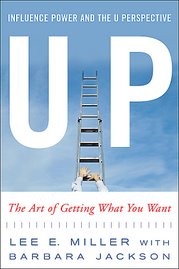 Sunday, November 16, 2008
Sunday, November 16, 2008According to the United States Department of Labor the unemployment rate rose to 6.5 percent, from 6.1 percent in October -- a 14-year high.
Since the beginning of the year, employment has fallen by 1.2 million nationally, with more than half of the decrease occurring in the past three months. New Jersey was not immune to this national trend, shedding thousands of jobs over the past year with further job losses anticipated.
The employment picture is not all bad news however. For people with a college degree, although unemployment is rising, it remains at a relatively low 3.1 percent. There are jobs to be had for people who know where to look and how to sell themselves.
If you are looking to move, consider Texas, because more than 50 percent of the new jobs this year were created there. While overall, New Jersey shed jobs, there were some bright spots locally. Jobs grew in the areas of transportation and warehousing, information and technology, professional services, education and health care, according to the state's Department of Labor.
According to Rob McGovern, chief executive of Jobfox.com, a next-generation career website that matches users to appropriate job openings, here are a few of the jobs that top their internet hiring list for New Jersey and New York:
- Sales representative/business development
- Market research
- Administrative assistant
- Accounting staff
- Medical administrative services
- Software design/development
- Networking/system administration
When you are looking for a job, don't limit yourself to looking for a job exactly like the one you just left. Examine your skills and see how they might be valuable in the industries that are going to grow over the next several years. Here are the top five areas where experts expect job growth:
The federal government The Office of Personnel Management is hiring, and anticipates filling 100,000 new jobs next year. That estimate was made before the election and will likely prove to be low. If you are an unemployed mortgage lender or have just been laid off from Wall Street, for example, keep your eye on opportunities that will arise as a result of the Troubled Assets Relief Program. (That is the $700 billion bailout program that is using our taxes rescue the financial services sector.)
Clean and green technology President-elect Obama has said his No. 1 priority is to create a new energy economy. He has promised $150 billion for a green energy program. Lots of engineers, scientist, technicians and researchers are going to be needed for the development and manufacturing of renewal energy.
But you don't have to be an engineer to go green. Project managers and construction workers are also going to be needed. After all, somebody has to build those wind turbines. There will also be a need for marketers and salespeople to sell all that green technology.
Health care We are all getting older. The one area that grew in almost every state this year was health care. Nurses, physician's assistants, home health care workers and information technology workers of all types to modernize heath care systems are, and will continue to be, in demand.
Education There is a teacher shortage with waves of teacher retirements on the horizon. Some states offer alternative certification programs that will allow you to become a teacher even if your college degree is not in education.
Compliance Government regulation is only going to grow over the next few years. There is already a shortage of accountants. We are going to continue to see growth in the demand for accounting services, bookkeepers and compliance specialists.
Times are tough. Lots of people have lost their jobs and there are more layoffs to come. But there is also potential opportunity for those who look at their skills broadly, have confidence and know how sell themselves. Your job may have gone away, but your skills, talent and positive attitude remain.
A veteran human resources executive, Lee E. Miller is a career coach, the author of "UP: Influence Power and the U Perspective -- The Art of Getting What You Want," and the co-founder of YourCareerDoctors.com, a website devoted to career success. Mail questions to Lee@YourCareerDoctors.com.














